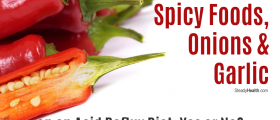
Whenever the esophagus becomes red, swollen or inflamed, it undergoes a state which is commonly known as esophagitis. This condition can be triggered by numerous different factors, some of these being more benign while others being symptoms of serious health problems.
Reasons behind Esophagus Problems
One of the most common triggers of esophageal inflammation is GERD, being the gastroesophageal reflux disease. This kind of acid reflux can be caused by pregnancy, obesity, smoking, excessive alcohol consumption, caffeine or food which is spicy or rich in fat.
Besides GERD, esophagus may get inflamed due to excessive vomiting since this exposes the area to acids as well. Alternatively, burning in the esophageal area can be triggered by a pill which was not taken with enough water, getting stuck there.
Infections belong to the list of possible causes of this condition too because viruses, fungi and bacteria can easily attack people with low immune systems, leading to esophageal issues, among other health problems.
If someone consumes a strong chemical, such as a drain cleaner, esophageal inflammation is bound to take place. Moreover, these situations may easily be deadly. Finally, radiation is known to trigger esophageal complications in some cases.
Signs of Esophagitis
Main manifestations of esophageal inflammation are difficulty and pain during swallowing, sensation of something like a foreign object located in the throat, burning, heartburn and possibly blood in vomit or stool.
Diagnosis and Treatment
Endoscopy is the best way of checking one's esophagus and doctors use it for the diagnosis of esophagitis. Alternatively, barium X-rays or inflamed tissue biopsy can be done for this purpose. Finally, the doctor may look into the cultures present in the esophageal area.
Once the reasons behind the inflammation of the esophagus are established, this condition is treated adequately. Acid reflux can be controlled and kept at bay by medications like proton pump inhibitors or H2 blockers, while antibiotics are used for treating bacterial infections. Inflammations are usually dealt with by using steroidal medications and painkillers are prescribed to reduce the aching in the area.
People with esophageal problems, and all other people who want to prevent esophagitis from ever affecting them, should not consume spicy or excessively acidic food as well as hard food such as raw vegetables, which can hurt the esophagus during the swallowing procedure. Naturally, alcohol and cigarette consumption is out of the question.
Prevention of esophagitis can be achieved through proper nutrition, by eating soft food like puddings, sauces, soups and custards. Also, one should eat 5 or 6 smaller meals distributed during the day, eating these with small bites, chewing them carefully. Before you go to sleep, make sure that your pillow allows your head to be at least 8 inches elevated. Finally, drinks should be consumed through a straw.
If you experience any persistent problems of this type, you are advised to seek medical attention as soon as possible.

















Your thoughts on this
Loading...